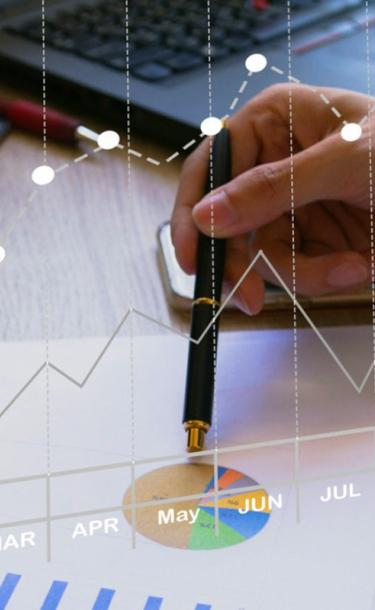What is Economics?
Economics at WLAC
Click below for more information about the Economics program at WLAC.
ECON 001 Principles of Microeconomics (3) UC/CSU
This course is an introduction to the field of microeconomics, which focuses on the behavior of individual economic agents including consumers, business firms, and the government when confronted with scarcity. The course also examines contemporary social issues such as income distribution and poverty as well as global issues such as outsourcing and protectionism. Topics include supply and demand, elasticity, forms of business organizations, theory of production and cost, pricing and output decision in various market structures, market failure and the role of government, labor management relations, and international trade. (GE Areas – CalGETC 4B)
ECON 002 Principles of Macroeconomics (3) UC/CSU
This course is an introduction to the field of macroeconomics. Topics to be analyzed include an analysis of the behavior of the national economy as a whole, together with such issues as the determination of gross domestic product, the unemployment rate, the inflation rate, interest rates, and the long-term economic growth rate. In addition, global issues such as the role of the exchange rate and the balance of trade are analyzed. (GE Areas – CalGETC 4B)
ECON 010 Economic History of the United States (3) UC/CSU
Emphasizes the causes of growth in the American economy and how the economy today continues to be influenced by events from the past. Considers the causes of the American Revolution: how changes in institutions and British attitudes contributed to the revolution. Analyzes how Southern plantation agriculture, slavery, and westward expansion culminate in the Civil War. Traces the increasing role of government in the economy starting with the Industrial Revolution, the price controls of World War I, the Great Depression, and the New Deal. Speculates on the future of the U.S. economy. (GE Areas – CalGETC 4B)
ECON 011 Economics of Globalization (3) UC/CSU
This course examines the phenomenon of globalization using economic analysis to explore controversial themes of the globalization debate such as off shoring, sweatshops, environmental standards, intellectual property protection, cultural diversity, economic development, and immigration. (GE Areas – CalGETC 4B)
Meet with a WLAC counselor to decide which courses meet your academic and personal needs. You can meet one-on-one with counselors either on-campus or virtually. Consult the Counseling Center’s website for hours and days of operation. Counseling appointments may be made through one of the following:
- On-Line Counseling webpage.
- counseling hours for individual counselors can be found on this page
- you may select a specific counselor or the next available
- Through email at wlac-cnseldsk@laccd.edu
- Using the on-line counseling request form
- In person at the Counseling Front Desk located in SSB 350.
- By calling the Counseling Center directly at (310) 287-7242.
Program Offered
- Associate Degree: Major Code 2204.00
- Degree/ Certificate Requirements
Associates in Arts for Transfer Degree (AA-T)
The Associate in Arts in Economics for Transfer degree provides a solid lower-division preparation for students who wish to pursue a bachelor’s degree in economics or similar major. This degree includes coursework that may align with lower-division requirements for transfer to various universities within the University of California (UC) and California State University (CSU) systems. While this degree guarantees admission to the CSU, it is not to any particular campus or program. Students are encouraged to contact the Transfer Office to learn more about transfer and to meet with a counselor for major preparation at the college of their choice in order to facilitate a seamless transition. Students are encouraged to visit the Transfer Center for complete information regarding transfer requirements for the institution of their choice. Students interested in transfer are also encouraged to consult the Counseling Office for individualized educational planning.
To earn an Associate Degree for Transfer, students must meet the following requirements: 1) Completion of 60 semester units or 90 quarter units of degree-applicable courses, 2) Minimum overall grade point average of 2.0, 3) Minimum grade of "C" (or "P") for each course in the major, and 4) Completion of IGETC and/or CSU GE-Breadth.

Dr. Meric Keskinel is a full-time Economics professor at West Los Angeles College, where he has been teaching since 2007. Originally from Turkey, he earned his bachelor’s degree in Economics from the University of Istanbul, his master’s degree in Economics from Northeastern University, and his Ph.D. from Claremont Graduate University. In addition to WLAC, Dr. Keskinel has taught at CSU Fullerton, CSU Long Beach, Santa Monica College, and El Camino College. Dr. Keskinel is passionate about helping students connect economic concepts to real-world issues. Outside the classroom, he enjoys walking on the beach, sailing, and traveling during the summer. Dr. Keskinel values WLAC’s diverse and motivated student body and is committed to fostering critical thinking and analytical skills that serve students well in their academic, professional, and personal lives.
Economics…it’s much more than you think. Much more than finance, banking, business and government, a degree in economics is useful to all individuals and can lead to many interesting career choices. These four diverse individuals offer their insights on how a background in economics can be a tool for solving very human problems.

